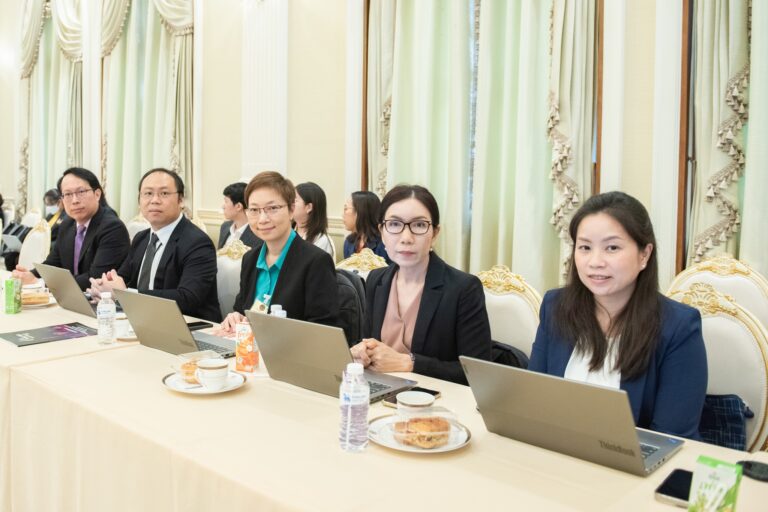
May 1, 2025, at the Bhakdi Bodin Building, Government House – Prime Minister Ms. Paetongtarn Shinawatra chaired the first meeting for the year 2025 (1/2568) of the Committee for Driving the National Artificial Intelligence Action Plan for Thailand’s Development (National AI Committee). Attendees included Deputy Prime Minister and Minister of Digital Economy and Society Mr. Prasert Jantararuangtong, Minister of Commerce Mr. Pichai Naripthaphan, Permanent Secretary of the Ministry of Digital Economy and Society Prof. Wisit Wisitsora-at, Permanent Secretary of the Ministry of Higher Education, Science, Research and Innovation (MHESI) Prof. Dr. Supachai Pathumnakul, along with experts and representatives from relevant agencies.
The Prime Minister opened the meeting by highlighting the importance of developing artificial intelligence technology for national development applications. She set the goal for Thailand to become one of the leading nations in AI technology development within the region. The Prime Minister emphasized the significance of human resource development, stating, “It is necessary to promote greater public understanding of AI, enabling people to readily adapt and fully leverage this technology, which will be a crucial factor in driving the country forward.”
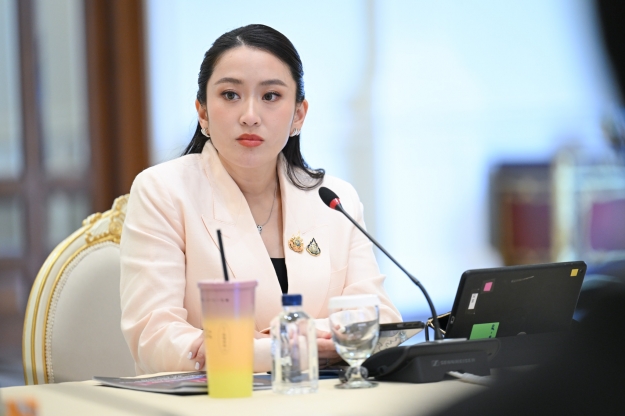
The meeting acknowledged the appointment order for the National AI Committee and reviewed the progress of the National Artificial Intelligence Action Plan for Thailand’s Development (2022 – 2024). Dr. Chai Wutiwiwatchai, Director of the National Electronics and Computer Technology Center (NECTEC), National Science and Technology Development Agency (NSTDA), serving as a Committee Member and Assistant Secretary, presented key achievements over the past two years, driven by five main strategies with clear progress in four areas:
- AI Governance: Establishment of AI Ethics Guidelines, the AI Governance Center (AIGC), continuous dissemination of the AI Governance Handbook, and collaboration with international organizations such as the OECD, UNESCO, and ASEAN.
- Infrastructure: Establishment of the National Supercomputer Center (housing the LANTA supercomputer), currently ranked 3rd fastest in ASEAN, and development of the National AI Service Platform, which consolidates over 76 Thai-developed AI tools, supported by the Government Data Center and Cloud service (GDCC), averaging over 1 million uses annually.
- Human Resource Development: Collaboration with the Ministry of Education to include AI curricula in basic education, development of plans to promote AI in higher education, and conducting the AI Bootcamp for the 5th consecutive year, having developed over 10,000 AI personnel.
- Research and Innovation: Focus on development in key national sectors, particularly medical and healthcare, through the development of a Medical AI Data Platform for sharing medical image data, which has collected over 2.2 million images covering 8 disease groups. AI is also being used to analyze population data via the TPMAP (Thai People Map and Analytics Platform) database to more effectively identify and support disadvantaged groups.
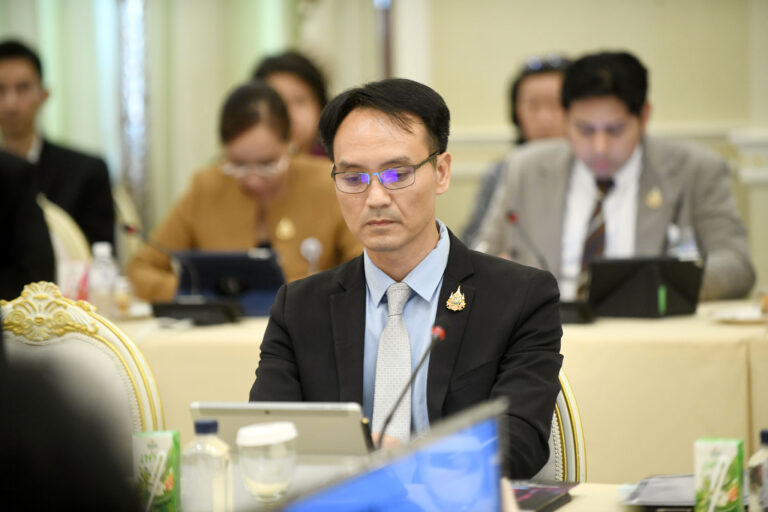
Furthermore, the meeting acknowledged progress in preparing to host The 3rd UNESCO Global Forum on the Ethics of Artificial Intelligence in 2025 and approved the National AI Program framework, agreeing to further consider proposals raised during the meeting. Following discussions, the Committee outlined preparatory guidelines for Thailand across various aspects, particularly focusing on developing a sufficient AI workforce. This is fundamental to the goal of educating at least 10,000,000 AI Users, developing no fewer than 90,000 AI Professionals, and training at least 50,000 AI Developers within two years.
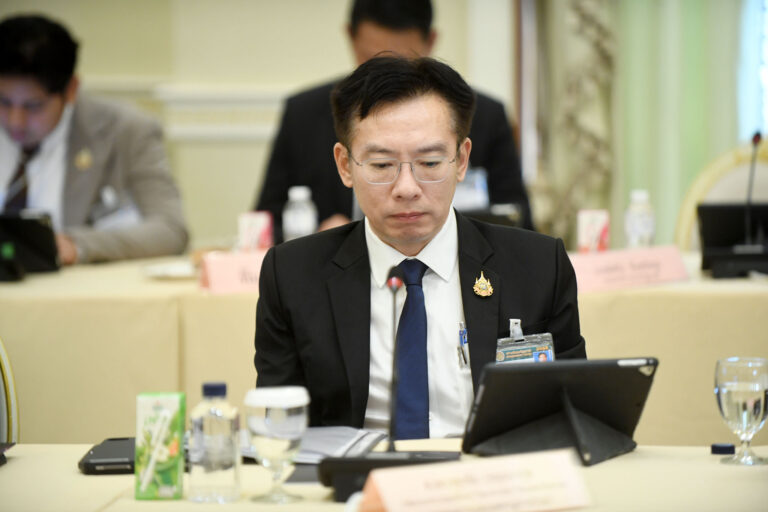
On this point, Prof. Dr. Supachai Pathumnakul, MHESI Permanent Secretary and Committee Joint Secretary, stated that MHESI has collaborated with Microsoft to develop AI courses at all levels. These will be integrated into the National Credit Bank System, allowing earned credits to count towards General Education requirements in higher education, marking a significant step in promoting AI learning and skills development for Thais.
Prof. Dr. Sukit Limpijumnong, President of NSTDA, representing the Minister of Higher Education, Science, Research and Innovation (MHESI), added, “Minister Ms. Supamas Isarabhakdi’s ‘MHESI for AI’ policy aims to drive AI for human resource development. AI can serve as a personalized tutor across various subjects, tailored to individual learning behaviors, enabling students to reach their full potential and helping reduce educational inequality. This could initially start with subjects like English and Science.”
Prof. Dr. Sukit also proposed integrating the strategic plan for driving Big Data utilization with the National AI Action Plan to ensure more efficient and rapid progress in the country’s data and AI strategies. He pointed out that AI acts as a tool to leverage Big Data effectively, emphasizing the need to clearly identify urgent priorities, such as applying Big Data and AI in vital sectors like public health, tourism, and education.
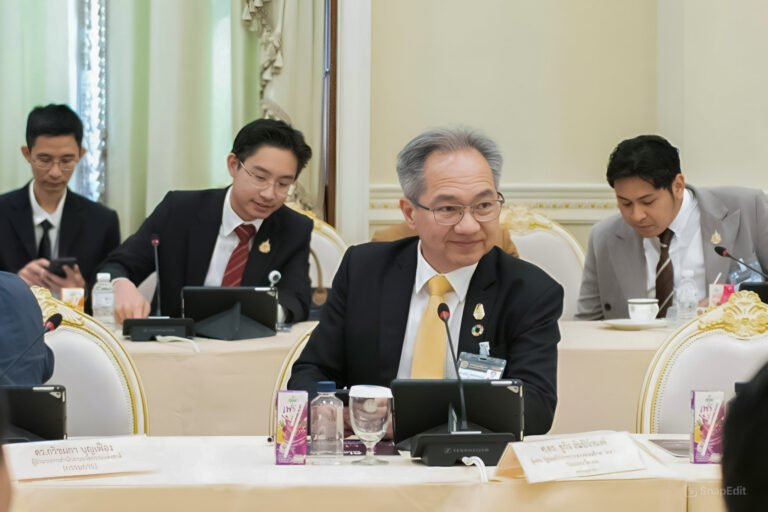
Additionally, the meeting recommended promoting investment in infrastructure, including cloud systems, data centers, GPUs, and developing sufficient Open Source AI Platforms to support the expansion of affordable technology applications. This includes establishing a Data Bank to consolidate data beneficial for AI development across various fields. For government data, the plan is to encourage all state agencies to fully digitize by 2026. The total investment in this infrastructure is estimated to be at least 500 billion Baht, comprising contributions from the government and both domestic and international private sectors.
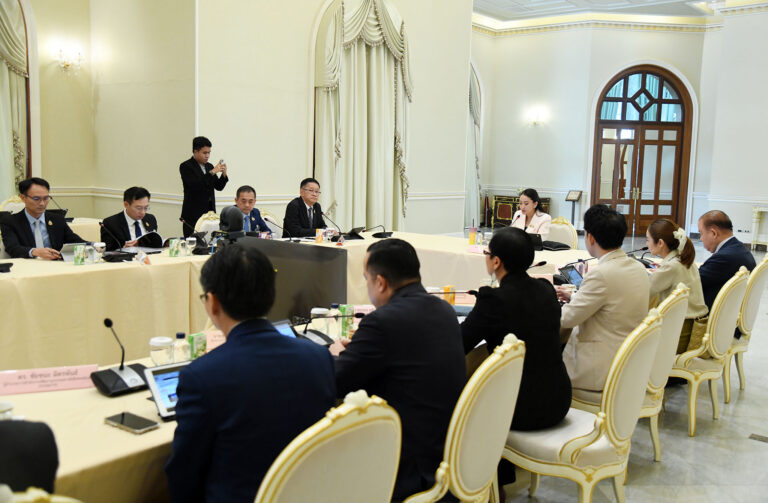
Regarding the promotion of AI application in business and industry, the focus will primarily be on sectors supporting economic growth and social development, such as public health, tourism, and agriculture. AI application is expected to enhance the efficiency of Thai medical services, elevating the country to an ASEAN medical hub, boost tourism in terms of both visitor numbers and spending, and make agriculture more efficient through optimized cultivation, higher yields, and targeted commerce and marketing. This support for AI application is anticipated to significantly benefit public health services, the tourism industry, and Thai farmers. To accelerate AI adoption, the government will support the establishment of Centers of Excellence to systematically integrate AI efforts in each sector in collaboration with the private sector.
